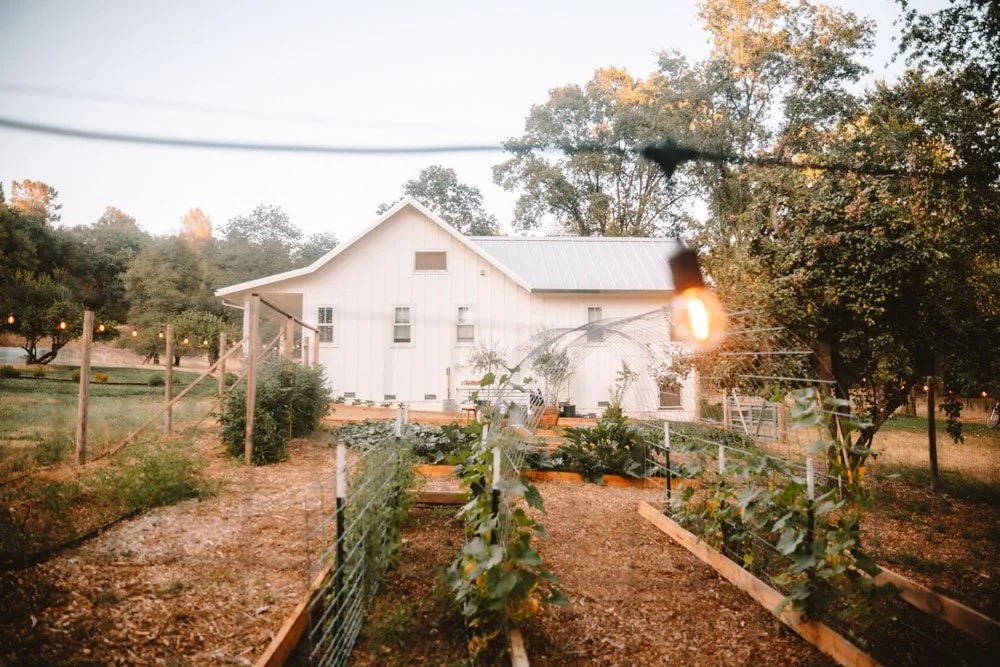What Is the Homesteading Exemption and How Does It Work?
Discover > Homesteading > What Is the Homesteading Exemption and How Does It Work?
The homestead exemption is a legal provision that allows homeowners to reduce the taxable value of their primary residence. In essence, this exemption lowers the amount of property tax that homeowners are required to pay. Homesteading laws vary from state to state, but the general principle is the same: homeowners are entitled to a certain level of protection from creditors and property taxes.
The homestead tax exemption is designed to help homeowners protect their primary residence from creditors in the event of a bankruptcy or other financial hardship. In many states, the exemption is automatic and does not require any action on the part of the homeowner. However, some states require homeowners to file a homestead declaration with the county clerk's office in order to receive the exemption. It's important to note that the homestead exemption only applies to a homeowner's primary residence and does not extend to vacation homes or investment properties.
What is Homesteading Exemption
Homesteading exemption is a legal provision that protects a portion of a homeowner's primary residence from being seized or sold to pay off certain types of debts. The homestead exemption is designed to provide homeowners with a measure of protection from creditors and to ensure that they are not left entirely destitute if they are forced to sell their home.
The homestead exemption varies from state to state and can be a fixed dollar amount, a percentage of the home's value, or both. In some states, the homestead exemption is automatic, while in others, homeowners must file a declaration of homestead with the county recorder's office.
The homestead exemption typically applies to debts such as credit card debt, medical bills, and personal loans. However, it does not protect against debts such as mortgage payments, property taxes, and liens. Additionally, the homestead exemption may not apply to debts owed to the government, such as income tax debt or child support payments.
Overall, the homestead exemption is an important legal protection for homeowners, and it is important for individuals to understand the specific laws in their state to ensure that they are properly protected.
How Homesteading Exemption Works
Homesteading exemption is a legal provision that protects the primary residence of a homeowner from certain types of creditor claims. The exemption allows homeowners to shield their homes from creditors and debt collectors, ensuring that they have a place to live even if they fall into financial trouble.
To qualify for homesteading exemption, the homeowner must meet certain criteria, such as owning the property as their primary residence and being up-to-date on mortgage payments and property taxes. The specific requirements for homesteading exemption vary by state, so homeowners should consult with a legal professional or their local government for more information.
Once the homeowner qualifies for homesteading exemption, the property is protected up to a certain value, which varies by state. In some states, the exemption is unlimited, meaning that the homeowner can protect the entire value of their home. In other states, the exemption is capped at a certain dollar amount, such as $100,000 or $500,000.
If a creditor tries to collect on a debt by seizing the homeowner's property, the homesteading exemption can be used to block the seizure. The homeowner can file a claim of homestead with the court, which notifies the creditor that the property is protected by law. The creditor must then seek other ways to collect the debt, such as wage garnishment or bank account levies.
Overall, homesteading exemption is an important legal protection for homeowners, giving them peace of mind and ensuring that they have a place to call home even during tough financial times.
Eligibility for Homesteading Exemption
Residential Status
To be eligible for homestead exemption, an individual must be a legal resident of the state where the property is located. This means that the individual must have established legal residency in the state, and must use the property as their primary residence.
Ownership Status
In addition to meeting the residential status requirement, the individual must also own the property in question. This means that the individual must have legal title to the property, and must be listed as the owner on the property deed.
It is important to note that some states have additional eligibility requirements for homestead exemption. For example, some states may require that the property be a certain size or value, or that the individual meet certain income or age requirements. It is important for individuals to research the specific eligibility requirements for homestead exemption in their state in order to determine whether they are eligible.
Overall, homestead exemption can provide significant financial benefits to homeowners, including reduced property taxes and protection from creditors. By understanding the eligibility requirements for homestead exemption, individuals can take advantage of these benefits and protect their primary residence.
Process of Claiming Homesteading Exemption
Application Process
To claim a homesteading exemption, the homeowner must first complete an application with their county's property appraiser's office. The application typically requires the homeowner to provide information about the property, including its address, the owner's name, and the property's use. The application may also require the homeowner to provide proof of residency, such as a driver's license or utility bill.
Once the application is complete, the homeowner must submit it to the property appraiser's office. The application deadline varies by state, but it is typically due by March 1st of the year in which the homeowner wishes to claim the exemption.
Verification Process
After the application is submitted, the property appraiser's office will verify that the homeowner meets the eligibility requirements for the homesteading exemption. This may include verifying that the homeowner is a permanent resident of the state, that the property is their primary residence, and that they have owned the property for a certain length of time.
If the property appraiser's office approves the application, the homeowner will receive a notice in the mail confirming that they have been granted the homesteading exemption. The exemption will then be applied to the property's assessed value, reducing the amount of property taxes the homeowner is required to pay.
It is important to note that the homesteading exemption must be renewed each year. Homeowners should receive a renewal notice in the mail from their county's property appraiser's office and must complete and submit a renewal application by the designated deadline to continue receiving the exemption.
Benefits of Homesteading Exemption
Homesteading exemption is a legal provision that offers homeowners protection from creditors and tax benefits. This section explores the benefits of homesteading exemption in detail.
Tax Benefits
One of the primary benefits of homesteading exemption is the tax relief it provides to homeowners. Homesteading exemption allows homeowners to reduce the amount of property taxes they owe by exempting a portion of their property's value from taxation. The exact amount of exemption varies from state to state, but it typically ranges from $5,000 to $50,000.
For example, if a homeowner in Florida has a homestead exemption of $50,000 and their property is valued at $200,000, they will only pay property taxes on $150,000. This can result in significant savings on property taxes, making homeownership more affordable for many people.
Protection from Creditors
Another significant benefit of homesteading exemption is the protection it provides from creditors. Homesteading exemption laws vary from state to state, but in general, they provide homeowners with a certain level of protection from creditors who may try to seize their property to pay off debts.
For example, if a homeowner in Texas has a homestead exemption, their property is protected from most creditors, including credit card companies and medical providers. In the event of a bankruptcy or foreclosure, the homeowner's homestead exemption can help them keep their home and protect their equity.
In addition to protection from creditors, homesteading exemption can also provide protection from lawsuits. In some states, homesteading exemption can be used to protect a homeowner's property from lawsuits resulting from accidents that occur on their property.
Overall, homesteading exemption provides homeowners with significant tax benefits and protection from creditors. It can make homeownership more affordable and provide peace of mind for homeowners who may be concerned about losing their home due to financial difficulties.
Limitations and Restrictions of Homesteading Exemption
While the homesteading exemption can provide significant benefits to homeowners, it is important to be aware of its limitations and restrictions. Here are some key points to keep in mind:
The homesteading exemption only applies to a primary residence. If you own multiple properties, you will need to designate one as your primary residence in order to qualify for the exemption.
The exemption only applies to certain types of debts. It does not protect against debts related to taxes, mortgages, or home equity loans. Additionally, the exemption may not apply to debts incurred after the homestead designation is made.
The amount of the exemption is limited. In many states, the exemption only applies to a certain amount of equity in the home. If you have significant equity in your home, you may not be able to protect all of it with the homesteading exemption.
The exemption may not protect against certain types of creditors. In some states, the exemption does not apply to debts owed to government entities or to certain types of creditors, such as child support or alimony obligations.
The exemption may not apply in certain situations. For example, if you sell your home, the proceeds of the sale may not be protected by the homesteading exemption. Additionally, if you file for bankruptcy, the exemption may not provide complete protection against creditors.
Overall, while the homesteading exemption can be a valuable tool for protecting homeowners' equity in their primary residence, it is important to understand its limitations and restrictions. Homeowners should carefully consider their financial situation and consult with a qualified attorney before making any decisions regarding the homesteading exemption.
Impact on Mortgage and Refinancing
The homestead exemption can have an impact on mortgages and refinancing. When a homeowner claims a homestead exemption, it can protect a portion of the property's value from creditors. This can make the property more secure and less risky for lenders, which can be an advantage for homeowners seeking a mortgage or refinancing.
In some states, claiming a homestead exemption can also affect the amount of property taxes owed. This can impact the amount of money a homeowner needs to pay each month on their mortgage or refinancing. It is important for homeowners to understand the homestead exemption laws in their state and how they can impact their finances.
Additionally, when refinancing a home with a homestead exemption, the lender may require the homeowner to waive their homestead exemption rights. This is because the homestead exemption can interfere with the lender's ability to collect on the loan if the homeowner defaults. By waiving the exemption, the lender can have a clearer path to collect on the property if necessary.
Overall, the impact of the homestead exemption on mortgages and refinancing can vary depending on the state and the specific circumstances of the homeowner. It is important for homeowners to consult with a knowledgeable attorney or financial advisor to understand their rights and options when it comes to the homestead exemption and its impact on their finances.
Homesteading Exemption in Different States
Homestead tax exemptions are a legal provision that allows homeowners to protect their primary residence from creditors and property taxes. The homestead exemption varies from state to state, and the rules and regulations governing it may differ significantly. Here is a brief overview of the homestead exemption in different states.
Texas
Texas has one of the most generous homestead exemptions in the United States. Under Texas law, homeowners can protect an unlimited amount of equity in their primary residence from creditors. Additionally, the property tax on the homestead is limited to 1% of the property's assessed value.
Florida
Florida also has a generous homestead exemption. Under Florida law, homeowners can protect up to $50,000 of equity in their primary residence from creditors. Additionally, the property tax on the homestead is limited to 3% of the property's assessed value.
California
California has a relatively modest homestead exemption. Under California law, homeowners can protect up to $75,000 of equity in their primary residence from creditors if they are single and up to $100,000 if they are married. Additionally, the property tax on the homestead is limited to 1% of the property's assessed value.
New York
New York has a homestead exemption that is limited to $170,825 of equity in the primary residence. Additionally, the property tax on the homestead is limited to 2% of the property's assessed value.
Illinois
Illinois has a homestead exemption that is limited to $15,000 of equity in the primary residence. Additionally, the property tax on the homestead is limited to 1% of the property's assessed value.
In conclusion, the homestead exemption varies significantly from state to state. Homeowners should consult a qualified attorney to determine the specific rules and regulations governing the homestead exemption in their state.
#tax bill #property tax bill #property tax relief #apply for a homestead #property tax exemption










